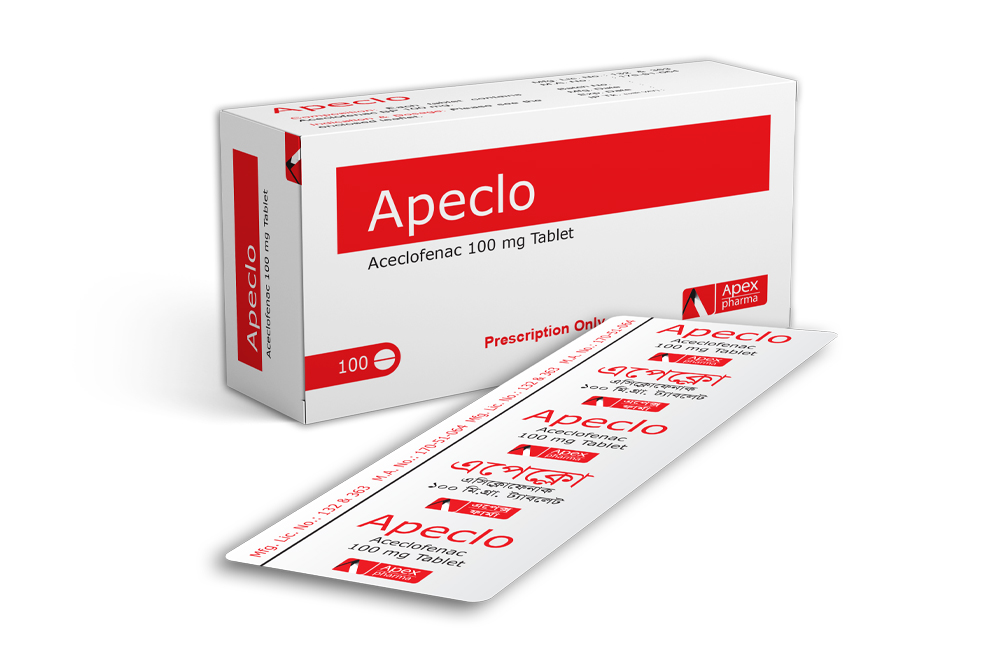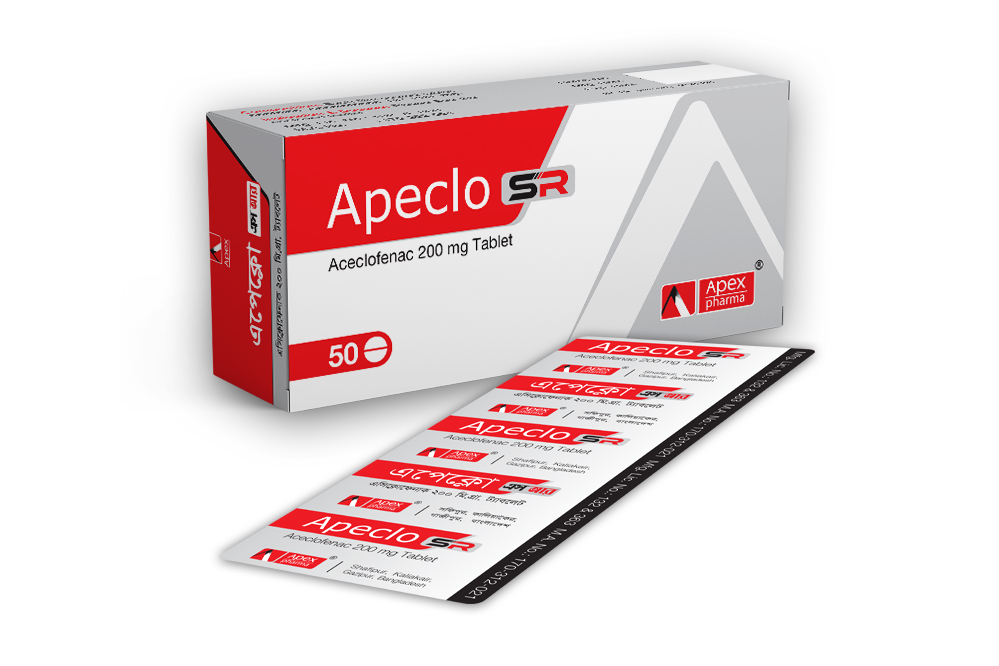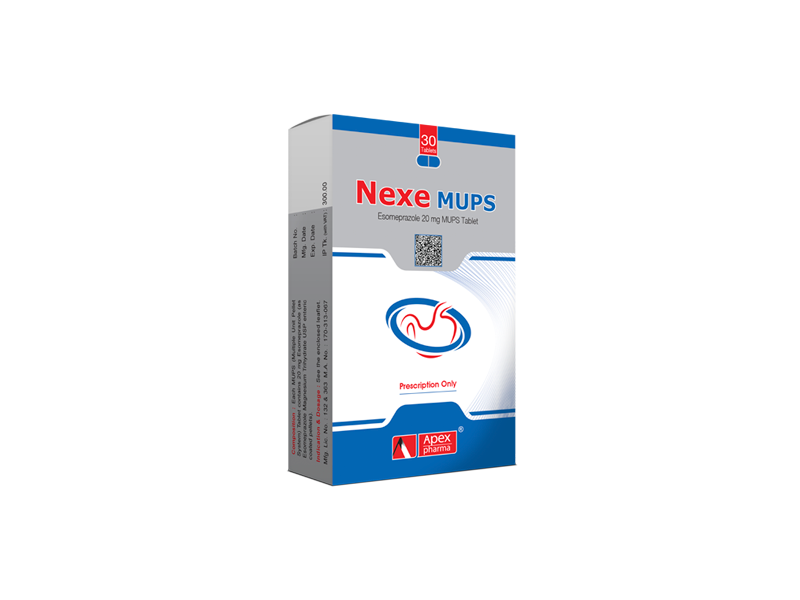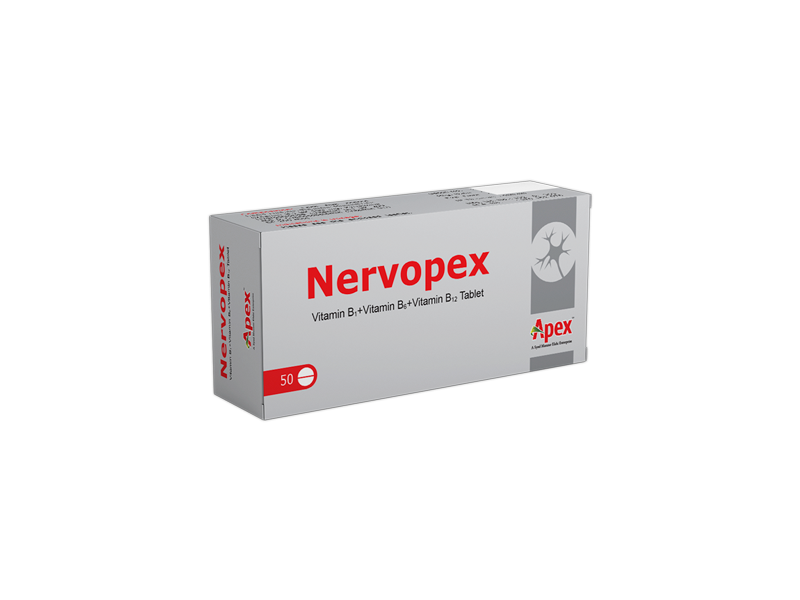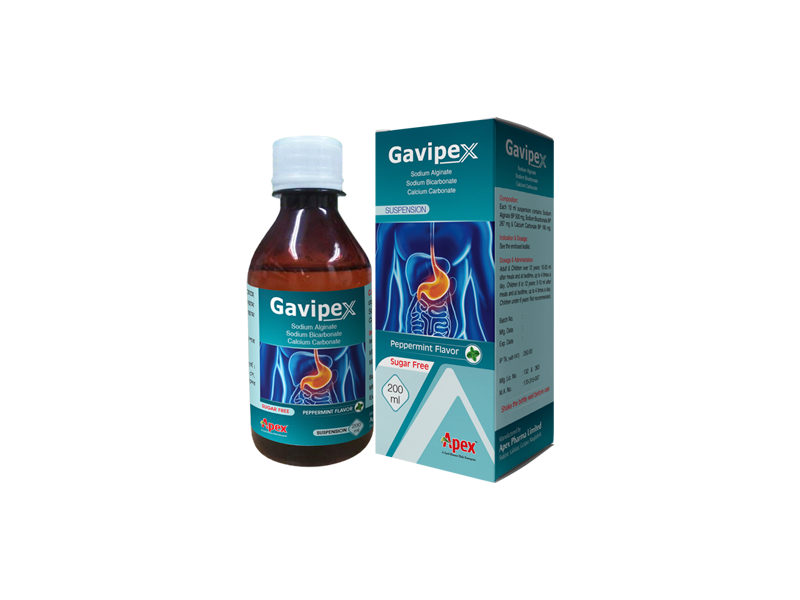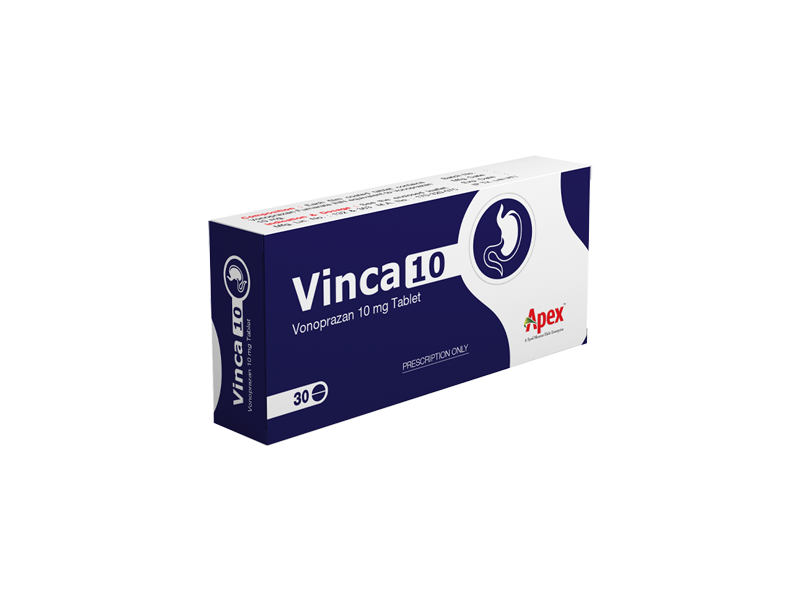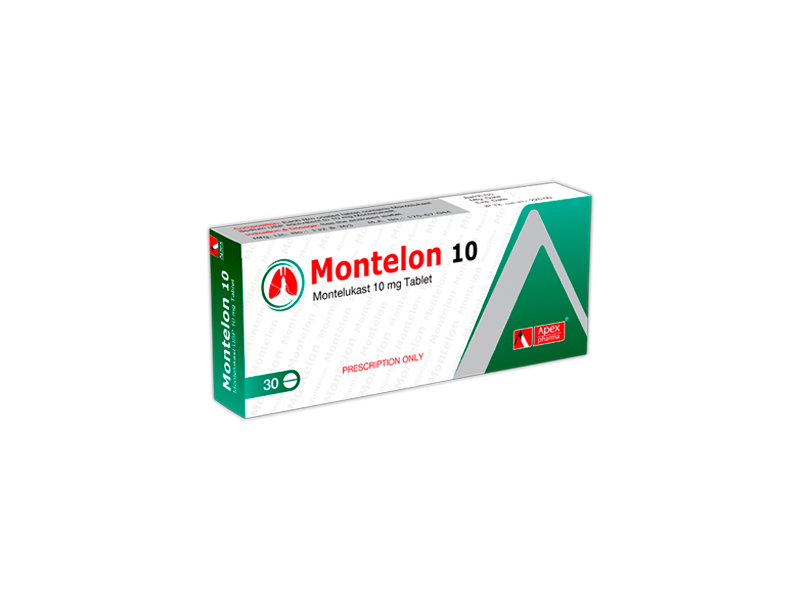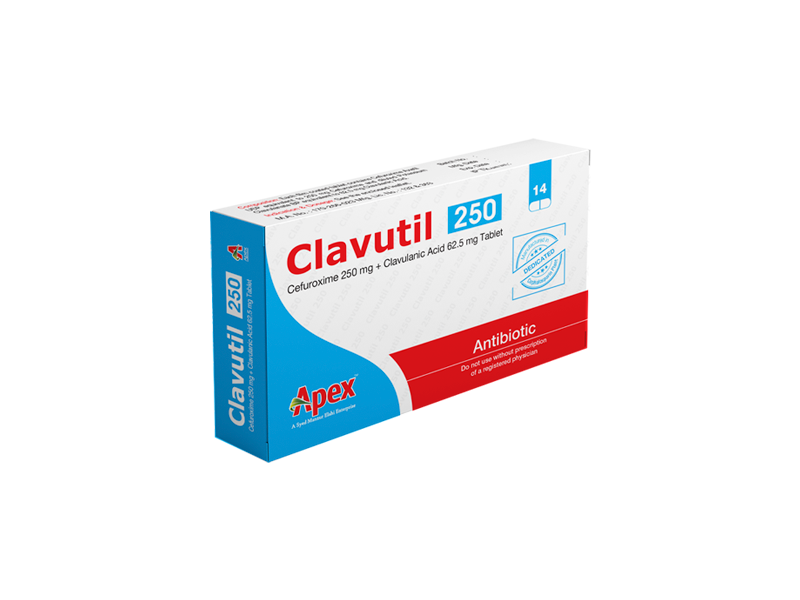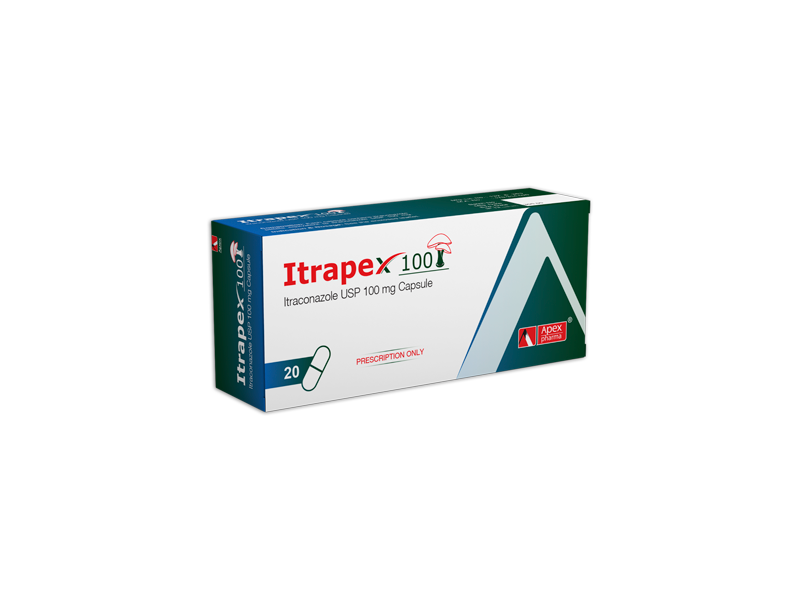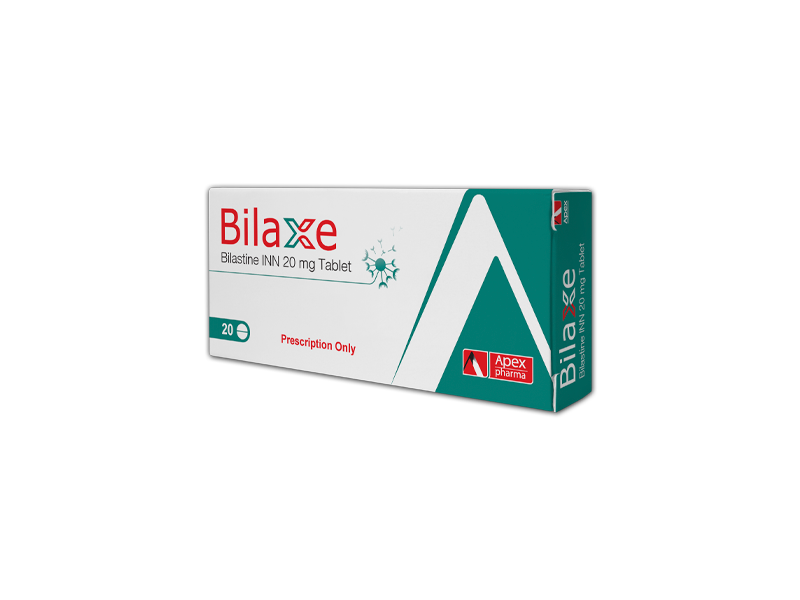
Apeclo
Home / By Brand Name / Apeclo
Composition
Apeclo Tablet: Each tablet contains Aceclofenac BP 100 mg.
Apeclo SR Tablet: Each tablet contains Aceclofenac BP 200 mg.
Pharmacology
Apeclo (Aceclofenac) is a potent non-steroidal anti-inflammatory (NSAID) drug that exhibits analgesic,
anti-inflammatory and antipyretic properties. Its mode of action is based on the inhibition of prostaglandin synthesis.
Moreover, unlike other NSAIDs, Aceclofenac has stimulatory effects on Glycosaminoglycans (cartilage matrix)
synthesis. Glycosaminoglycans (GAG) are essential for cartilage formation, repair and building tendons & other
connective tissue. That's why, Aceclofenac is a novel NSAID; it not only inhibits pain & inflammation of arthritic
conditions but also improves joint conditions and protects them from further deterioration.
Indication
Apeclo/Apeclo SR is indicated for the relief of pain and inflammation in various conditions:
Musculoskeletal and joint disorders: Rheumatoid arthritis, osteoarthritis, ankylosing spondylitis, degenerative joint
diseases and juvenile arthritis.
Peri-articular disorders: Bursitis and tenditis
Soft tissue disorders: Sprain and strains
Other painful condition: Renal colic, acute gout, dysmenorrhea, migraine, dental pain and following some surgical
procedures
Dosage & Administration
Apeclo: 200 mg daily, taken as 2 separate doses (every 12 hrs) with meal or after meal.
Apeclo SR: 200 mg daily, taken as 1 dose (every 24 hrs).
Hepatic impairment: Dose should be reduced to 100 mg daily.
Contraindication
Aceclofenac is contraindicated in i. known hypersensitivity to Aceclofenac, or another NSAIDs ii. who experience
attack of asthma, bronchospasm, acute rhinitis urticaria or edema after use of similar drugs (e.g. aspirin or other
NSAIDs) iii. active or suspected hemorrhage, active peptic ulcer, Crohn's disease or ulcerative colitis iv. with serious
heart diseases v. the treatment of post-operative pain in the setting of coronary artery bypass graft (CABG) surgery
vi. porphyria.
Precaution
Aceclofenac should be used with caution in i. bronchial asthma or other chronic diseases of the pulmonary tract as
well as in persons prone to allergy ii. hepatic, renal or cardiac insufficiency and hypertension iii. dehydration iv. fluid
retention or heart failure v. coagulation disorders or patients receiving anticoagulants and vi. elder patients.
Side Effects
Most frequently reported: abdominal pain, diarrhea, dyspepsia, GI bleeding/ulceration, heartburn, nausea, headache,
dizziness, edema, pruritus, rashes and tinnitus.
Reported occasionally: congestive heart failure, hypertension, hepatitis, jaundice, blood disorders, depression,
drowsiness, insomnia, nervousness, vertigo, bronchospasm, hematuria, photosensitivity, dysuria, oliguria, renal
failure.
Use in Pregnancy & Lactation
Pregnancy: Pregnancy category C. Because of the known effects of NSAIDs on the fetal cardiovascular system
(closure of ductus arteriosus), use during pregnancy should be avoided.
Lactation: It is not known whether this drug is excreted in breast-milk. Because of the potential for adverse reactions
in nursing infants, decide whether to discontinue nursing or to discontinue the drug, taking into account the
importance of the drug to the mother.
Drug Interaction
Anticoagulants: anticoagulant effect may enhance. Antidepressants (SSRIs, Venlafaxine), Clopidogrel, IIoprost,
Pentoxifylline, Sibutramine: increased risk of bleeding. Antidiabetics (Sulfonylurea): hypoglycemic effect may
enhance. Antiepileptic (Phenytoin): possibly enhance effects of Phenytoin. Antihypertensive (Beta-blockers,
Calcium-channel blockers, Clonidine, Diazoxide, Methyldopa, Moxonidine, Nitrate, Hydralazine, Minoxidil,
Nitroprusside): NSAIDs antagonize their hypotensive effect. Diuretics: risk of nephrotoxicity of NSAIDs increased and
also diuretic effect is antagonised. Cardiac Glycosides: plasma concentration of cardiac glycosides is increased.
Corticosteroids: increased risk of GI bleeding and ulceration. Other NSAIDs and Aspirin: Concomitant use should be
avoided. Cytotoxics (Methotrexate), Lithium, Baclofen: NSAIDs reduce their excretion, increased risk of toxicity.
Aminoglycoside: plasma concentration of Aminoglycoside is increased. Antipsychotic (Haloperidol): reports of severe
drowsiness.
Overdose
There are no human data available on the consequences of Aceclofenac over dosage. If over dosage is observed,
therapeutic measures should be taken according to symptoms; supportive and symptomatic treatment should be
given for complications such as hypotension, gastro-intestinal irritation, respiratory depression, and convulsions.
Keep away from light & moisture and store below 30o C. Keep out of the reach of children.
PRODUCTS
